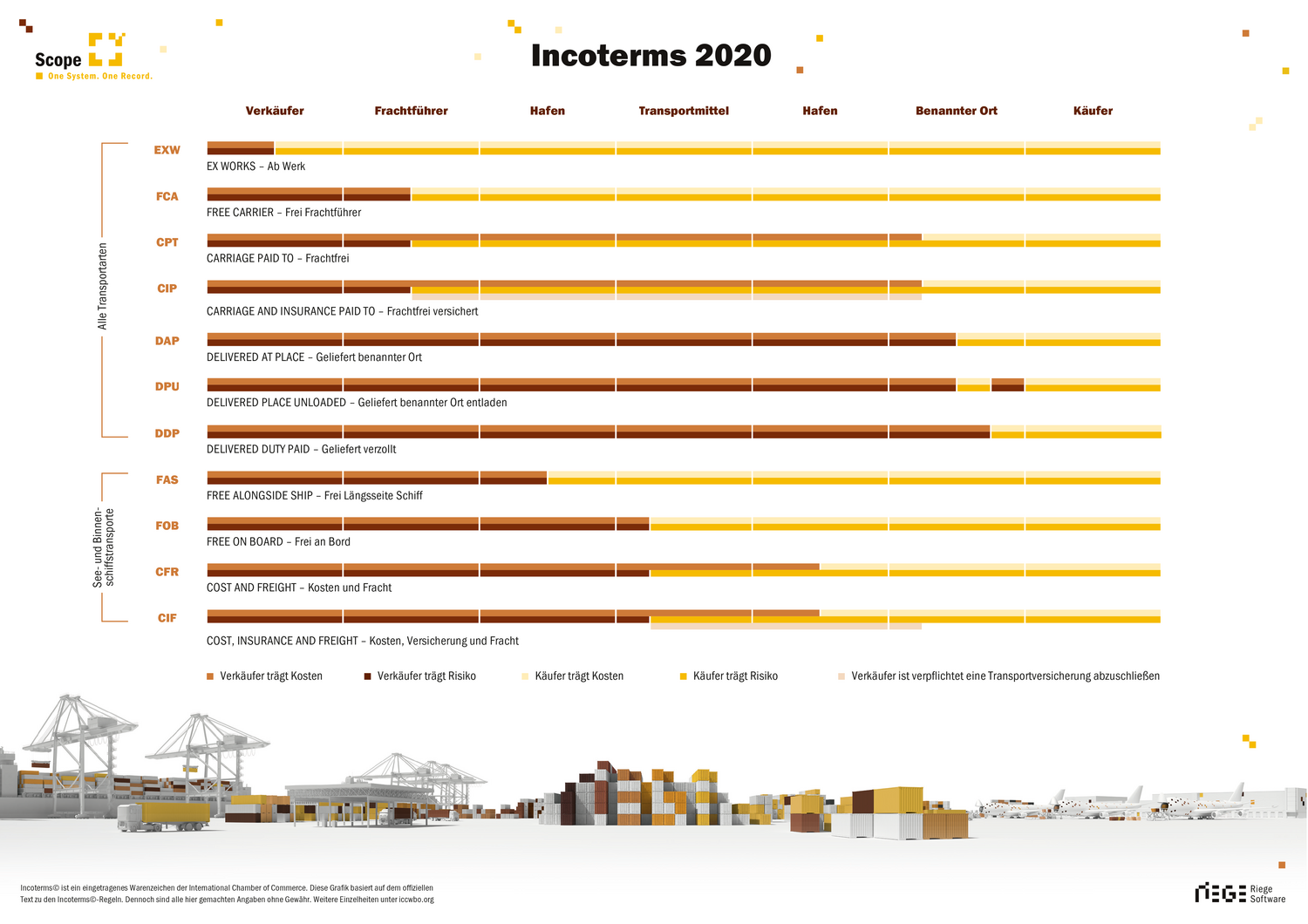Incoterms 2020 poster for free download
For everyone new to the business: The Incoterms (International Commercial Terms) are standardized commercial terms issued by the International Chamber of Commerce (ICC). As a supplement to sales contracts in both the international and national movement of goods, Incoterms regulate tasks, costs and the transfer of risks. They define precisely where you responsibilities begin, but more importantly where they end.
Incoterms 2010 and Incoterms 2020 – What applies when?
The Incoterms 2020 will apply as of January 1st, 2020. However, Incoterms 2010 can still be applied if both business partners agree.
What is new in Incoterms 2020?
There are still 11 Incoterms, each coded in 3 letters. But 5 things have changed.
- DAT, DAP, DPU: The clause DAT is dropped. In its place either the clause DAP or the new clause DPU can be used.
- FCA: Here a regulation has been added to on-board bill of lading confirming that the goods have been taken on board or are intended to be taken on board a ship.
- CIF, CIP: While the insurance clause ICC-C (minimum insurance cover against specified damage) continues to apply when the CIF clause is applied, insurance cover ICC-A (Institute Cargo Clauses - All risks) is required for CIP.
- FCA, DAP, DPU, DDP: Within the framework of a transport contract, it can now also be agreed that the buyer or seller will carry out the transport using his own vessels.
- FAS, FOB, CFR, CIF: The clauses EXW, FCA, CPT, CIP, DAP, DPU, DDP apply to all modes of transport including inland waterway and sea transport. FAS, FOB, CFR and CIF are reserved exclusively for shipping traffic, primarily used for mass and bulk materials.
What does Riege do?
Riege does you good, even when it comes to Incoterms. In order to simplify their application in daily practice, we created a poster for you to download the new Incoterms 2020 for personal use. So you always have all clauses in view.

Incoterms 2020 (Deutsch)